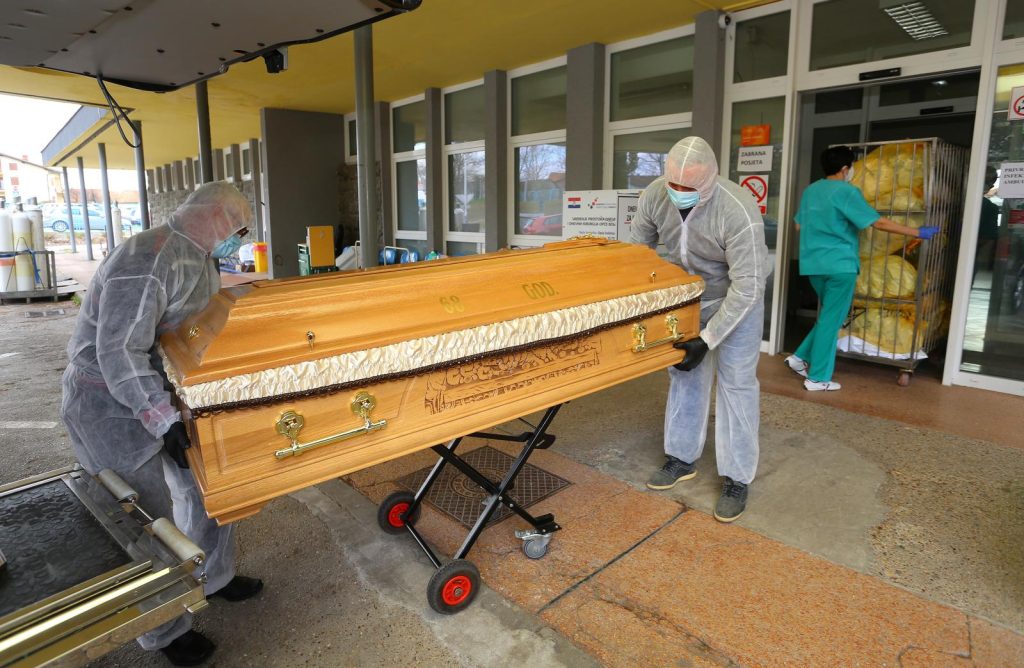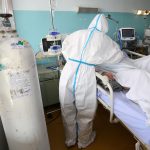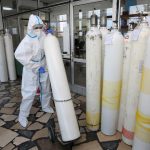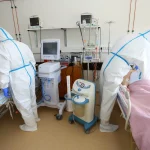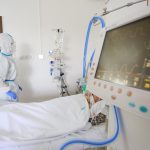Thus, of the total of 12,500 COVID-related deaths since the outbreak, over 8,000 persons have died in the past year.
According to data from the Croatian Institute of Public Health, in 2020 there were 4,478 COVID-related deaths, while in 2021 there were near twice as many, 8,407. About 80% of them were not vaccinated.
According to official data on the koronavirus.hr website, a total of 700,000 people in Croatia have contracted coronavirus, and the highest number of daily new cases was on 9 November, when 7,368 infections were registered.
Although the fourth wave of the pandemic is still ongoing, due to the emergence of the new Omicron variant of the virus, experts are announcing the possibility of another, fifth wave as early as the beginning of 2022. According to the latest data, 51 Omicron cases have been detected in Croatia so far.
With the arrival of the vaccine in January, mass vaccination began in Croatia, and Health Minister Vili Beroš said the goal was to inoculate 50% of the population by the summer. However, this percentage was not reached even by the end of the summer.
Two-thirds of adults vaccinated
By the end of 2021, about 55% of the total population was vaccinated, or 66% of the adult population, so Croatia is 30% behind countries with the highest vaccination rates.
Although interest in the vaccine was high among citizens at the beginning of the year, it gradually declined and inoculation nearly came to a halt in early summer. In the autumn, the interest rose again but not enough to significantly increase the immunization rate.
From jumping queue for vaccination to anti-vax protests
In a year, we went from people jumping the queue for vaccination at the very beginning, which caused public outrage and condemnation, to anti-vaccination protests, which became louder and bigger in the autumn, after mandatory COVID certificates had been introduced in the healthcare and social welfare systems and state and public institutions.
The culmination of the protests was in late November when an estimated 20,000 people gathered in Zagreb’s Ban Jelačić Square, and after that threats were recorded, and even attacks of anti-vaxxers on doctors, which happened in Bjelovar.
By the end of 2021, about 4,7 million vaccine doses were administered in Croatia, 2.2 million people were vaccinated with two doses, and about half a million citizens received their third dose.
The COVID pandemic has further driven up the already huge costs of the healthcare system, and the treatment of COVID patients has so far cost Croatia about HRK 4 billion.
The hospital system has been adjusting to the epidemiological picture of coronavirus, which has meant delays in medical examinations, tests, and non-emergency procedures, which made it even more difficult for many citizens to access healthcare.
Due to huge debts, which reached HRK 6 billion, in March drug wholesalers restricted drug supplies to twenty hospitals with the largest debts for medicines and medicinal products.
The government and drug wholesalers then agreed that the debt would be repaid by the end of the year, but that did not stop new debts in the hospital system.
Although he has been announcing it, Minister Beroš still hasn’t unveiled a proposal for health reform, which should streamline the system and reduce costs.
So far, there has been talking of some measures, such as a unified public procurement system, centralization of the hospital system, and consolidation of the institute of public health and emergency medicine.
For all you need to know about coronavirus specific to Croatia, make sure to bookmark our dedicated section and select your preferred language if it isn’t English.

